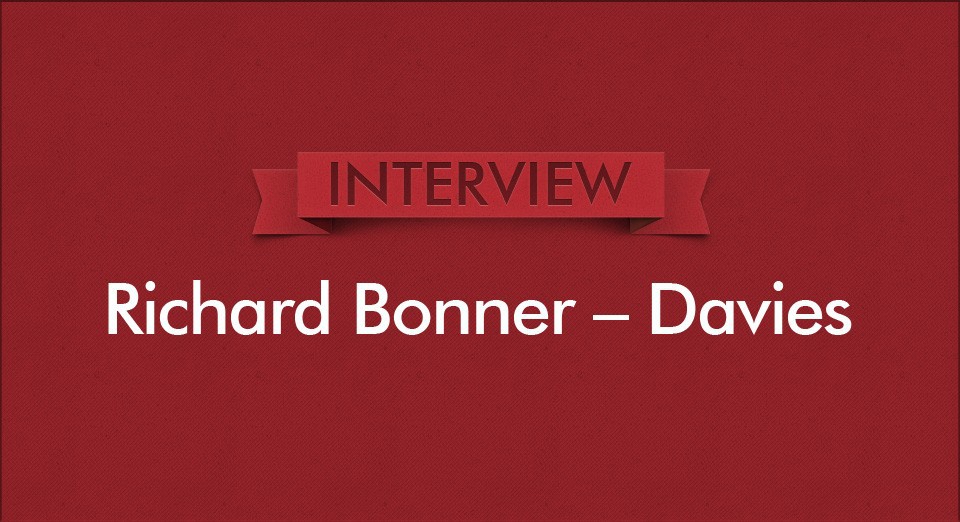
INTERVIEW: RICHARD BONNER-DAVIES
INTERVIEW: RICHARD BONNER-DAVIES, McCann marketing agency director for Central and Eastern Europe
There are still countless opportunities for advertisers to reach consumers who are again more informed and spend more wisely, which, among other things, are a consequence of the economic crisis.
I, the company, tell you, the consumer, what I want you to know about my brand! That’s how we used to function.
Today, in the digital era, consumers exchange information about products on social networks independently of what producers want, as my colleague puts it - people will talk about products regardless of whether or not advertisers get out of bed tomorrow, says Richard Bonner-Davies, the McCann marketing agency director for Central and Eastern Europe of McCann.
Bonner-Davies has arrived in Belgrade to celebrate 15 years of McCann in Serbia, whose Belgrade branch yesterday received the Full Steam Ahead award for the best agency in the Designing and Programming of Marketing Communications category at the Marketing Event of the Year event.
The first man of McCann, for the offices in Switzerland and Kazakhstan to Russia and Turkey, only expects growth from the Serbian market, but he adds that the entire region is characteristically less creative than Western Europe and North America.
Marketing in Central and Eastern Europe is not as creative as in the rest of the world. Creativity for creativity’s sake should not be an end in itself; it should have some kind of result. It really does increase sales.
Why is that?
Because it’s a young industry. Where there is consumerism there is marketing. In Russia it was born only in 1991. Srđan Šaper launched McCann in Serbia 15 years ago and in a relatively short period of time it has achieved excellent results in developing marketing in your country. Two Cannes Lions, the most important creativity awards, are proof of that. Nevertheless, online advertising in this region is not sufficiently developed. In Britain, McCann sets aside half of its budget for digital media advertising. In Serbia, it’s six or seven percent.
You say that marketing keeps in step with spending. What is today’s consumer like?
Burdened by the economic crisis. This is seen in the jump in sales of televisions and cable television subscriptions. People are staying at home instead of going out. They are spending more wisely. And many are more informed due to the abundance of information on social networks and the Internet.
Some say that companies no longer control the image of their brands because information is freely exchanged on the Internet.
If a company is dishonest, the consumer will immediately set it straight. But our consumers’ social media also comprises our supporters. Two weeks ago a passenger of the company Turkish Airlines wrote direct from the aeroplane on our client’s Facebook page: “It’s too hot in the plane, I must find another carrier!” We reacted immediately. After some time, the same passenger wrote: “We’ve reached an agreement with the pilot to lower the temperature. I’ll never have to change my airline again!” That’s what I’m talking about. That’s the power of social media. The consumer who complained about the service became its advocate.
Yes, but consumers worry about the security of their information on these same social mediums and the Internet.
As a parent I too am concerned. I always tell children to take care. As a marketing man, I see an opportunity. That’s good, because Google brings up adverts which are important to you. Adverts for diapers and prams should be shown to young mothers, not me, the parent of a teenage girl.
How is the industry responding to concerns that too much information is being collected about users?
Yes, Google and Facebook are companies that collect information. It’s their job. People think they’re using free e-mails or Internet, but the price of this free service is that the companies offering them these services know what we are writing or what we are searching for.
In Serbia people speak critically about adverts: they’re sexist, they take advantage of children, etc. A new code is being written and there is a lot of talk about self-regulation. Is self-regulation enough or are clearer laws needed?
I agree that the state must strictly control cigarette and alcohol advertising. I’m not familiar with the situation in Serbia, but for the examples given I can say that this is foolish marketing. We want to connect product with buyers and if during this process you take advantage of children, then you will most likely put off consumers. If I want to make you buy my product, then your anger is probably not the best way. In this sense, self-regulation which is nothing more than common sense is important.
What advantages of advertising in the press or on TV remain?
Television still familiarises consumer with brands and the press provides deeper information about a product. When somebody makes a coffee and sits down to read the newspaper, they are obviously looking for something more than an Internet user or TV viewer is.
Jelena Stevanović
Source: Politika
